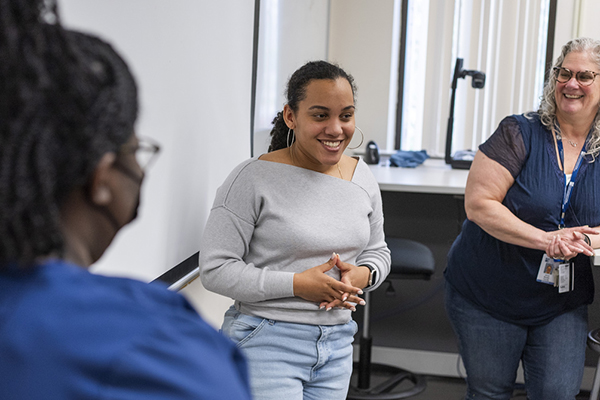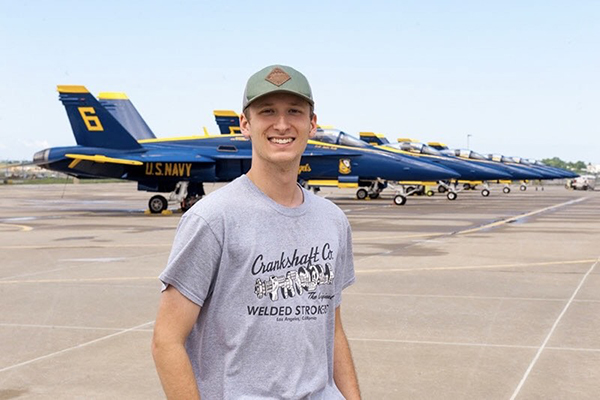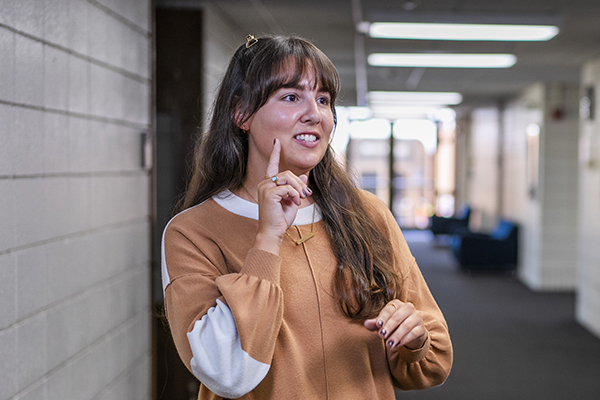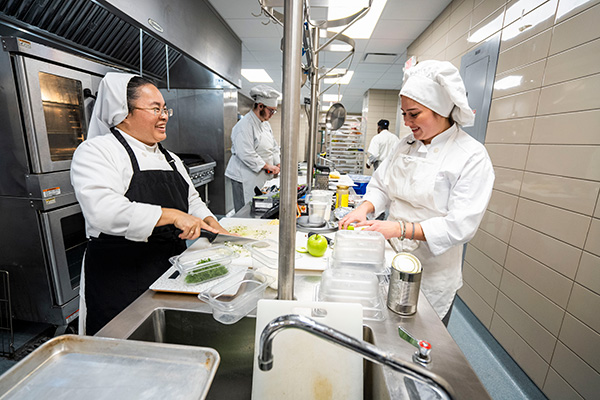STLCC's New Bachelor’s in Respiratory Care Opening Doors For Graduates
January 04, 2024
Posted by School of Health Professions in Programs and Pathways
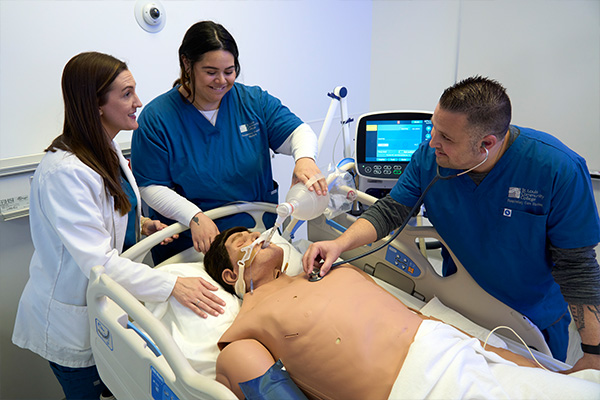
Kevin Ton found himself in a job that matched his interests, but not his passion.
He spent nearly a decade working in laboratories doing various tasks after he graduated from a university in the St. Louis area with a bachelor’s degree in biology.
When he reached his early 30's and was still doing the same type of work, he decided it was time to make a change.
"I didn’t want to be in that environment for the rest of my career or my life," Ton, 31, said. "So, I decided to look at other fields in biology."
That search led him to St. Louis Community College, where a degree in respiratory care emerged as the best option for his new chosen career. He didn't understand just how perfect it fit until he talked to Lindsay Fox, program director for STLCC's respiratory care program.
About STLCC's Bachelor's in Respiratory Care
Fox told Ton about the College's new entry-level bachelor's in respiratory care, and how it would provide more options than an associate degree once in the workforce.
"It’s that return on investment," Fox said. "It’s about students' lifelong career earnings in a high-demand field where you can land a job anywhere in the country. A bachelor's degree allows a student to quickly start progressing up that ladder to grow into leadership positions within the field or positions in health care outside of respiratory."
STLCC also offers an entry-level associate's degree in respiratory care. The two-year program provides a perfect fit for someone who doesn't have four years to commit to earning a bachelor's degree or would prefer to advance their education later while working in the field.
The respiratory care bachelor's path prepares students for roles not historically open to people with a two-year degree. Bachelor's-seeking students receive training that prepares them for positions in management, research, education, and advanced clinical practice.
For example, a graduate of this program, upon receiving the RRT credential, will be able to apply to a master's level Advanced Practice Respiratory Therapist (APRT) program, which prepares students to be mid-level practitioners (like physician assistants or nurse practitioners) to deliver a range of health care beyond what bedside respiratory therapists typically provide.
Similar programs at state colleges cost around $60,000 in tuition alone. A student who spends four years in STLCC's program will pay under $15,000.
"The fact that you can receive a four-year degree for under $15,000 total is pretty unbelievable, especially to gain employment in a high-demand, high-paying profession that impacts the lives of others every day," Fox said.
Respiratory Therapy Career Opportunities
Like almost all medical professions, the respiratory care field saw a significant decline in its workforce coming out of the COVID-19 pandemic. These therapists were on the frontlines of the battle. Many burned out from caring for a crushing number of patients or from the emotional strain of seeing so many patients die.
Or both.
Christy McAllister, director of operations for respiratory services at Mercy Hospital in Creve Coeur, has watched the profession transition during her 25-year career. Having worked in an administrative role for the past 17 years, she's well aware of the extreme shortage of therapists and said the need in hospitals for these practitioners across the region and nation is unsustainable.
Before the pandemic, there might be a job opening "here and there" at any given hospital, McAllister said. Now, in her hospital alone, she has upwards of a dozen open positions. Other hospitals are reporting shortages of 20 or more respiratory therapists.
While STLCC has always provided a pipeline to Mercy, one of the College's clinical partners, McAllister said the new bachelor's program is especially exciting for the St. Louis region.
"A bachelor's-trained therapist comes out with additional critical thinking skills," she said. "They tend to understand the bigger picture of things, both bedside and in a leadership role. They tend to get a little more in their education that gives them that insight. They're traditionally better prepared and highly knowledgeable in respiratory care.
"I’m really excited to see what kind of workforce we can have at our fingertips. The closest one is the University of Missouri (in Columbia, Missouri), and they don't just have St. Louis people there. So, I think this will put bachelor's-holding respiratory care therapists in our own backyard."
Respiratory Care Programs in St. Louis
Fox said the new program has numerous selling points to prospective students, especially those living in the St. Louis metropolitan area.
It provides access to a well-paying career with room for growth in the field or within the health care system in general; it's the only program of its kind within a two-hour drive of downtown St. Louis; STLCC students have access to leaders in the profession at the College and through their clinicals; and the affordability of the degree is unmatched.
For Ton, who completed most of the prerequisites while earning his first degree, it only made sense to get a second bachelor's degree.
"I’m extremely grateful for STLCC and the academic support team," said Ton, who is slated to graduate in spring 2026. "They did a really great job getting me in the program and on a very short timeline."

